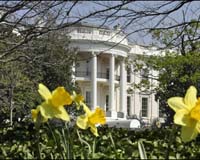 |
Tehran (UPI) Jun 17, 2010 Three days after the U.N. Security Council imposed new U.S.-led sanctions on Iran over its nuclear program, Tehran signed a $7 billion natural gas pipeline deal with U.S. ally Pakistan in defiance of Western efforts to bring its economy to its knees. Iran is also gearing up to make a move to participate in the giant $11 billion Nabucco gas pipeline project to pump Central Asian gas to Europe via the Islamic republic's new found friend Turkey, NATO's only Muslim member. If Iran succeeds in joining Nabucco, that would be a big setback for Russia, which backed the sanctions. Moscow fervently opposes the plan to pump up to 31 billion cubic meters of gas a year to Europe, which currently is heavily dependent on Russia for its energy. Turkey, a key U.S. ally since the Cold War, is seeking regional leadership under its Islamist government, much to Washington's annoyance, and appears to be forming a new strategic axis with Iran and Syria. "More than anything, it is Iran's likely participation in Nabucco that will be keenly watched in the months to come," observed Indian analyst M.K. Bhadrakumar, a former ambassador to the Soviet Union and Pakistan, in a recent Asia Times analysis. "Russia best hope has been that Iran stays away from the European gas market and instead concentrates on the Asian market But the contrary is happening -- Iran is seeking out both the Asian and European markets." Iran faces an uphill struggle regarding Nabucco, given Europe's current attitude, but that could change as Europe's eagerness to get Russia off its back increases. Sunday's Tehran signing of the much-delayed pipeline project with Pakistan, first mooted 17 years ago, crowned a determined Iranian effort to break out of the Western-imposed restrictions hampering the development of its all-important energy sector. Iranian officials say Tehran needs $25 billion to develop its crucial energy sector. Iran has the world's second largest reserves of natural gas after Russia but only supplies about 1 percent of the world's gas exports. From mid-2014, the pipeline to neighboring Pakistan will carry 21.5 million cubic meters per day, 20 percent of Pakistan's needs. Iranian Deputy Oil Minister Javad Ouji said during the signing ceremony that Iran plans to boost gas production to by about one-third to 900 million cubic meters a day over the next three years with the expansion of South Pars, eventually hitting 1,100 mcm a day by 2015. The Iranians were so determined to secure the project they had already laid 560 miles of the 900-mile section of the pipeline that runs from the giant South Pars offshore gas field in the Persian Gulf to the Pakistan border. Pakistan will have to build 437 miles of pipeline from the frontier through unruly Balochistan province to its gas transmission hub at Nawabshah, in Sindh province near Karachi. There the gas will be used to produce 5,000 megawatts of electricity. The United States sought to pressure Pakistan, now a vital U.S. ally in the war against Islamist extremism, to drop the pipeline project. But Islamabad refused. Washington presumably couldn't risk alienating Pakistan as the war in Afghanistan is being stepped up. India, Pakistan's longtime adversary, was originally part of the project. But it pulled out because of differences over the price of gas, the security of the section of the pipeline running through Pakistani territory and the high transit fees demanded by Islamabad. New Delhi may still decide to join the project but if it doesn't China, ever hungry for energy to fuel is expanding economy, has said it's prepared to replace India. China has major energy deals with China in defiance of international sanctions. The state-owned China National Petroleum Corp. is involved in developing the South Pars field. But like New Delhi, Beijing has concerns about Pakistan's political stability as its army moves increasingly against the Islamists. China prefers overland routes for its energy supplies than the seaborne routes it uses now, which are vulnerable to U.S. Navy interdiction. Pakistan's political stability is obviously also of considerable concern to Iran, which has a lot riding on this project.
Share This Article With Planet Earth
Related Links Powering The World in the 21st Century at Energy-Daily.com
 BP 'shakedown' remark sets off US political furor
BP 'shakedown' remark sets off US political furorWashington (AFP) June 17, 2010 A US lawmaker kicked off a political storm Thursday and embarrassed his own Republican party by apologizing to BP chief Tony Hayward for what he termed a White House "shakedown." "I'm ashamed of what happened in the White House yesterday," Joe Barton told Hayward during a congressional hearing, referring to the fact that BP bosses summoned to a meeting with US President Barack Obama had then ... read more |
|
| The content herein, unless otherwise known to be public domain, are Copyright 1995-2010 - SpaceDaily. AFP and UPI Wire Stories are copyright Agence France-Presse and United Press International. ESA Portal Reports are copyright European Space Agency. All NASA sourced material is public domain. Additional copyrights may apply in whole or part to other bona fide parties. Advertising does not imply endorsement,agreement or approval of any opinions, statements or information provided by SpaceDaily on any Web page published or hosted by SpaceDaily. Privacy Statement |